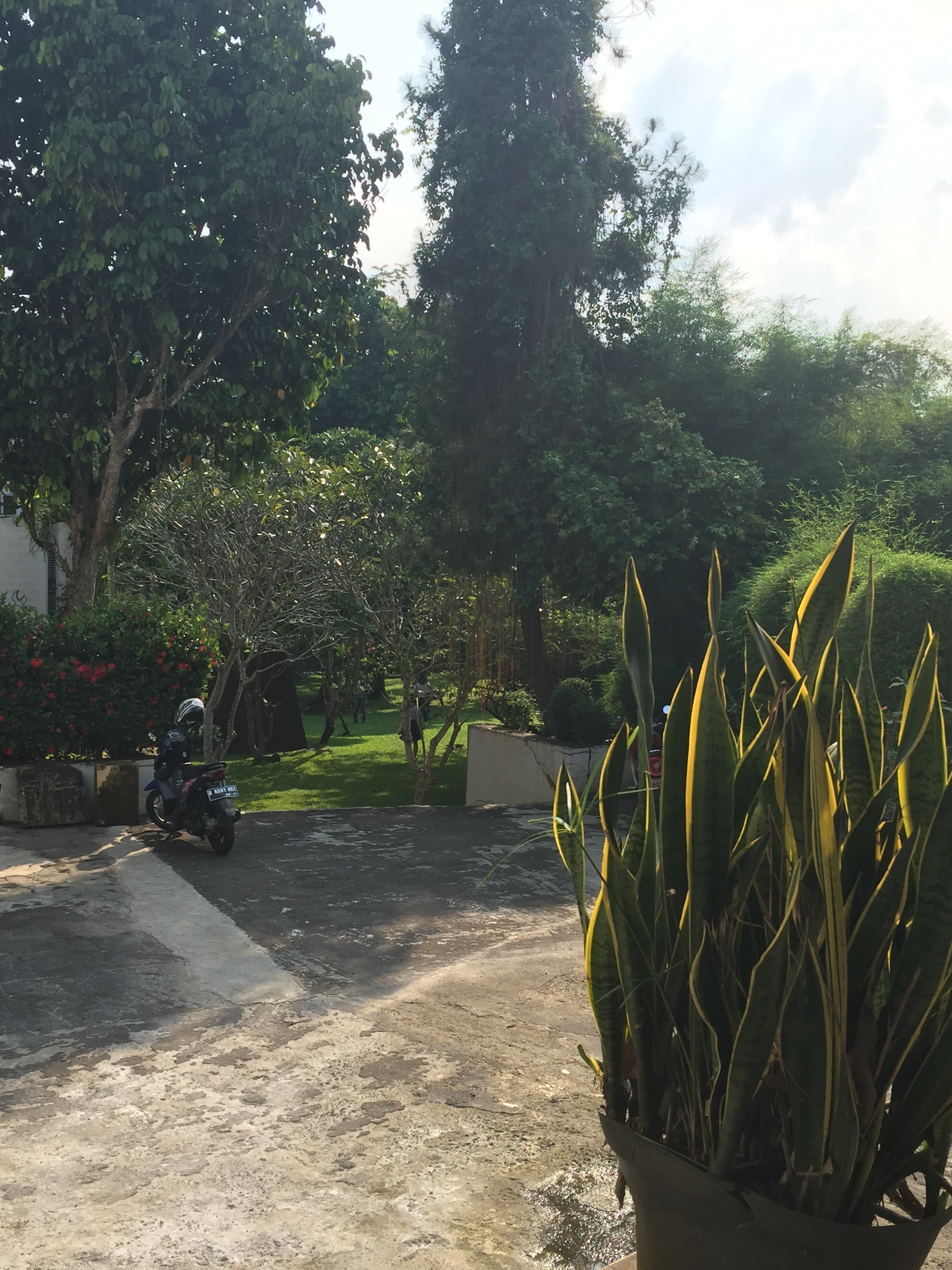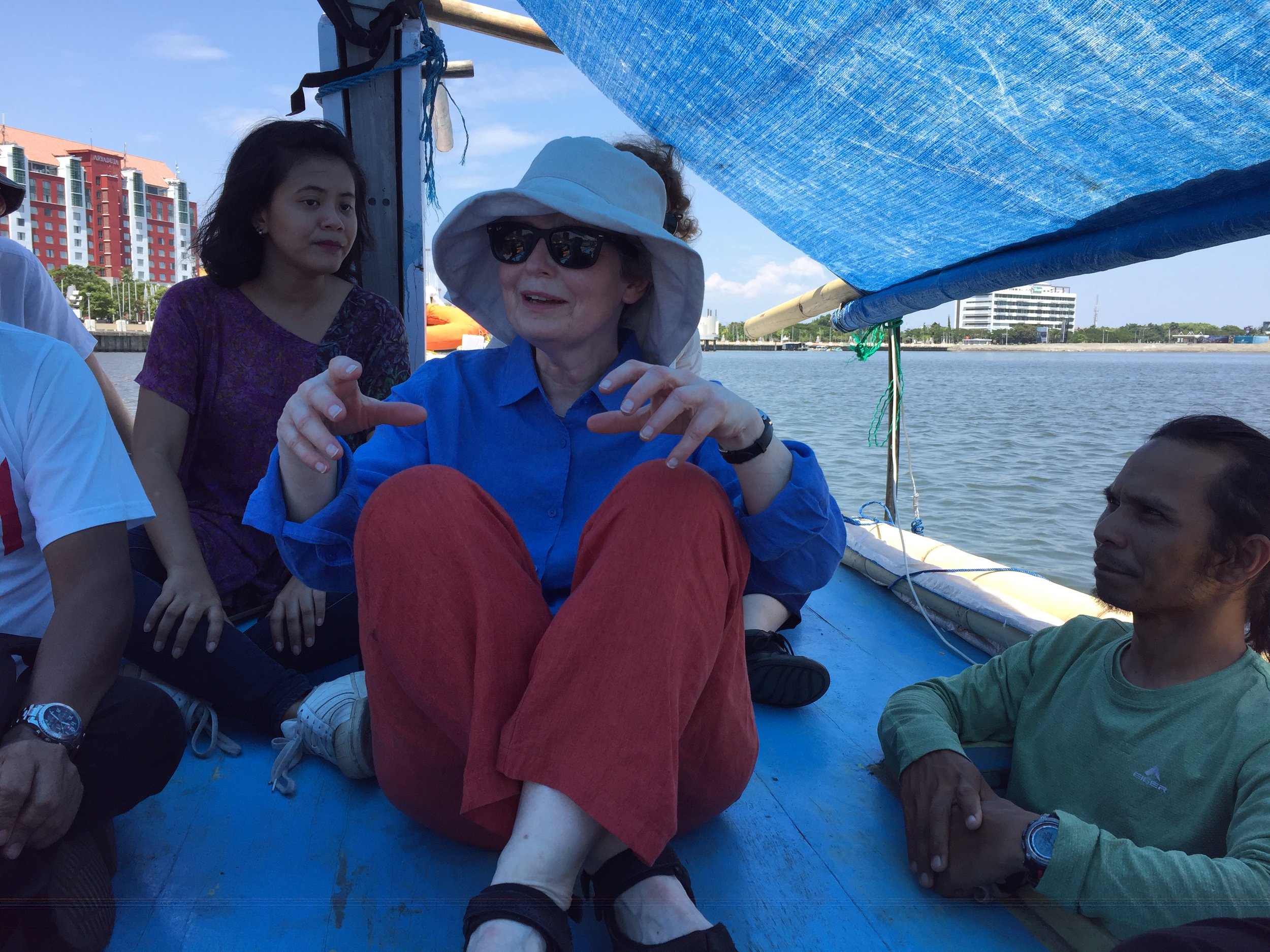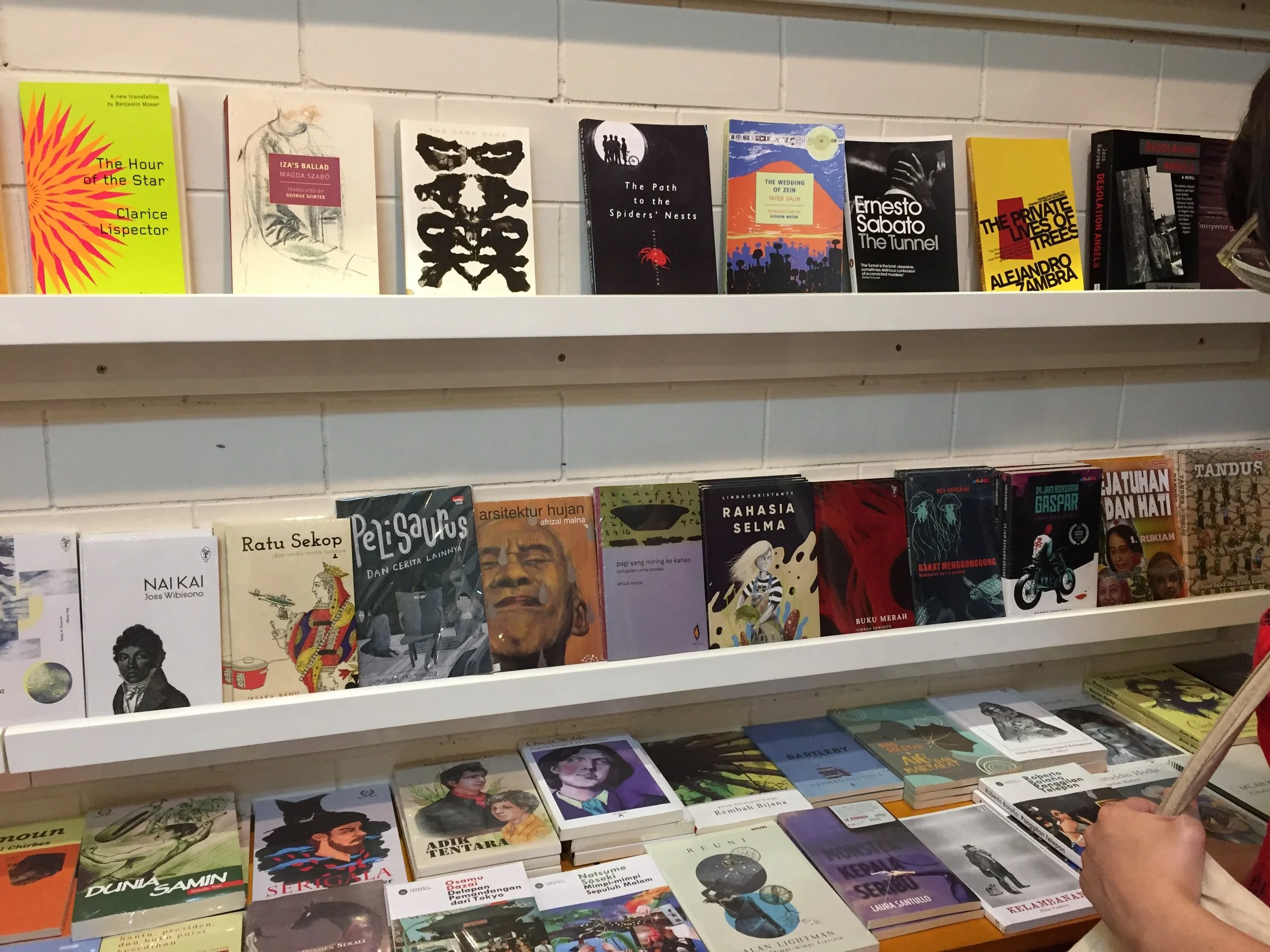Kazakh writer and translator Zaure Batayeva interviews Hamid Ismailov on living in exile, Central Asia’s nomadic history, and the women who shaped him
Read MoreTransoxiana Dreams by Almagul Menlibayeva

Transoxiana Dreams by Almagul Menlibayeva
Kazakh writer and translator Zaure Batayeva interviews Hamid Ismailov on living in exile, Central Asia’s nomadic history, and the women who shaped him
Read More
We at Tilted Axis are thrilled to launch our new Kickstarter to fund Translating Feminisms, poetry chapbooks from across Asia.
Translating Feminisms showcases intimate collaborations and conversations between some of Asia’s most exciting authors and emerging-star translators: contemporary poetry of labour and language, alongside essays exploring how, where and by whom feminist writing and female bodies are translated.
For us, feminist publishing means working against the fetishisation of ‘oppression’, and demands that authors explicitly subscribe to what white women recognise as feminism, or even foreground their femaleness in their work. Working towards ensuring the women we publish have the creative agency to contextualise their own work, resisting the commodification, fetishisation and/or erasure of their femaleness on their own terms.
As part of Tilted Axis’s wider project of decolonisation through & of translation, and in response to seeing WoC authors’ work misread through a white feminist lens, we wanted to re-imagine the possibilities of a fully intersectional, international feminism. In the process, we’ve expanded our own conception of feminist writing and being - we hope these chapbooks will do the same for you.
With your support for this poetry project, Tilted Axis can continue its mission to shake up contemporary international literature and the publishing industry. As a nonprofit, we're excited to experiment with more collective forms of publishing through crowdfunding, bringing under-represented languages into English. Back us, and we'll deliver.
Earlier this month, Associate Publisher Saba Ahmed joined five other UK editors on a British Council scouting trip to Indonesia, a brilliant opportunity to showcase our own literary lists and build enduring relationships with our counterparts at Indonesian publishing houses. The arts scene in both Jakarta and Makassar is extremely vibrant, supported by the dynamism of smaller presses and organisations with radical ideals, cool festivals, and cultural spaces focussed around collaboration and community. Here are some photographs from her time there:



Day 1: May Day / International Workers' Day! Labour activists and union members rally on the streets of Jakarta.



Here we are at the beautiful and serene Studio Hanafi, in Depok, a residency centre for young artists working across different mediums and forms, often even in collaboration. We met writers and poets like Heru Joni Putra whose work is concerned with his Minang identity (Minangkabu people are an ethnic group indigenous to the highlands of West Sumatra – the world's largest matrilineal society) and migration.

We return to Kemang in Jakarta where we visit another gallery, Dia.Lo.Gue. Dia means he/she in Indonesian, lo means you, gue means I – #wordplay! Engel Tanzil, founder and curator, gives us a guide to a sensitive exhibition on novelist Pramoedya Ananta Toer, chronicler of Indonesia's battle for independence against the Dutch colonists. Engel hopes that the recovery of Pram's extensive archives and the resurgence of his work will newly inspire young artists here.


Day 2/3: After a hectic day of speed-dating other publishers, writers and journalists, we fly out to Makassar, on the island of Sulawesi, and home to the Makassar Writers Festival. Our own poet-legend Khairani Barokka performed and workshopped in the sunlit spaces of Fort Rotterdam back in 2014, so MWF holds a special place in our hearts! Our first panel – ably translated by British Council Indonesia Programme Manager Irma – talks forcefully and lucidly on twenty years of freedom following President Suharto's militarised repressive dictatorship. Pictured above: artist and activist Hikmat Darmawan, badass novelist Ayu Utami, translator John McGlynn – also founder of the wonderful Lontar Foundation, the effervescent and Jakarta Art Council prizewinning Ziggy Zezsyazeoviennazabrizki, and writer Mark Heyward.


In-between other excellent panels including the likes of renowned critic and scholar Melani Budianta, writer and journalist Lily Yulianti Farid, and feminist publisher Olin Monteiro, we cool down in 30-degree temperatures with sop buah, avocado juice (as delicious as it sounds), very good iced coffee, and pisang epe.



Day 4/5: Before we fly back to Jakarta, we visit two more incredible spaces. The first: Tanah Indie, a small press set up by Anwar Rachman, as well as a research institute slash library slash place for writers and artists to talk and co-conspire. The second: a mobile boat library, which travels to remote islands across South, Central and West Sulawesi in an effort to promote literacy and reading for pleasure.


Day 6: Our last day here (sob!) – we blow the last of our rupiah at POST (a bookshop that doubles as a micro-press) at Pasar Santa, publisher of Mikael Johani's poetry collection We Are Nowhere And It's Wow. Time for one last bear hug with heart-breaking poet Norman Erikson Pasaribu whose verses will break you into pieces, then gently re-assemble you. And a chance to meet our own Han Yujoo, queen of cool and experimental dream-like prose, who is visiting Jakarta as part of the WrICE programme.


We make one last stop at Kota Tua, the old town of Jakarta where we take a peek in the Museum Wayang. Pictured above: details from glass paintings depicting epic tales of goddesses and gift-giving.
With many thanks to Cortina Butler and Harriet Williams at British Council UK, and Adam Pushkin, Irma Chantily, Viandira Athia Mulyono at British Council Indonesia for their heroic efforts organising. And, of course, to the other editors involved: Ka Bradley at Granta and Portobello Books, Paul Engles at Maclehose Press, Juliet Mabey at Oneworld, Shane Rhodes at Wrecking Ball Press, and Ellie Steel at Harvill Secker – a great mix of smaller and larger publishing forces, all spotlighting literature in translation.

We’re thrilled to announce that Tilted Axis Press has entered into a co-publishing arrangement with Brow Books (Australia), meaning that they'll publish some Tilted Axis titles from here on in.
It is very exciting to be partnering with a publisher that shares our commitment to seeking out innovative and exceptional writing from across the globe. Brow Books is a new-ish book imprint from the celebrated quarterly literary magazine The Lifted Brow. This not-for-profit literary organisation has for more than a decade now been publishing work from the literary and/or demographic margins, from writers and artists in Australia and the rest of the world.
In August Brow Books will be kicking off the partnership by publishing in Australia Han Yujoo’s electric and unsettling The Impossible Fairytale (translated from the Korean by Janet Hong). Han will be in Australia around the time of the book's publication, touring the country as a fellow of the 2018 Writers Immersion and Cultural Exchange Program.
Publisher of The Lifted Brow Sam Cooney had this to say about the agreement:
“We’ve been keenly admiring Tilted Axis Press from its inception, delighting from afar at all it has achieved in a few short years – not only at the books it has published, but at the way it goes about its work: with a heady mixture of resoluteness and optimism. As a press ourselves where process is always a huge part of the outcome—where any success is only as excellent as the way it was reached—we are so thrilled to now be officially in partnership with a small press that clearly prioritises similar concerns. We’re extremely excited to begin introducing Tilted Axis Press titles to keen readers in Australia and New Zealand – it’s about time we over here had the opportunity to read such exquisite stories from near and far corners of the world that have been too long ignored.”
Brow Books is the new-ish book imprint from the not-for-profit literary organisation which for more than a decade now has been publishing the celebrated quarterly literary magazine The Lifted Brow. Like the magazine, Brow Books is committed to finding and championing work from the literary and/or demographic margins, from writers and artists in Australia and the rest of the world. Its early successes include Briohny Doyle’s The Island Will Sink and Shaun Prescott’s The Town; its latest book is Apple and Knife by Intan Paramaditha.

Uzbek stamps depicting Abdulla Qodyri & Queen Oyxon
I have completely forgotten what the initial impulse that made me write The Devils’ Dance actually was. I hope it wasn’t an instance of some sort of literary hooliganism because in my youth I used to ‘recreate’ lost or obliterated works of Uzbekistan’s classic poets and writers, and rather succeeded in reproducing their writing styles, manners and ways of thinking. Perhaps I thought then, why not write the novel, which our ultimate literary icon Abdulla Qodiriy was planning to write himself, meant to surpass all his previous novels? But as we know, Qodiriy was arrested and shot dead during the Stalinian purges.
Luckily, as I looked over my original manuscripts for the novel, I discovered it wasn’t a case of literary hooliganism. At the time, I was plotting to write something about the Great Game*. I don’t remember where this idea came from, but it may well be that I wished to pay tribute to the UK, where I have been living for the past twenty-five years (I have never lived in any other place for such a length of time). I started to gather material about the English officers Colonel Stoddart and Captain Conolly, who ended up tragically losing their lives in Bukhara. I collected all possible documents from the British Library and other archives, including government ones. At the same time, I recalled Abdulla Qodiriy's plan to write a novel about the Great Game, though he approached it from a completely different angle – by addressing the fate of the famous Queen Oyxon, who had been wife to three different Kings during that period.
Also, throughout the last twenty-five or so years, Uzbekistan has lived through the totalitarian regime of President Islam Karimov, one of the fiercest and utterly corrupt dictatorships in the world. This was the backdrop to my writing The Devils’ Dance. As another famous Russian poet Nikolay Nekrasov once said about the Russia of his time: ‘A heart, which has grown tired of hating, will never learn how to love’. At first sight, it is a seemingly simple statement. However, if you think about it, it is double-edged. On the one hand, it means that if you hate your country to the point of having grown tired of loathing it, you will no longer be able to love it. On the other hand, you won’t be able to love your country, should you grow tired of hating it, or in other words you should never tire of hating it in order to be able to love it. Thinking about the dire state my country has been left in, I felt that perhaps people needed some light, some positive heroes like Abdulla Qodiriy and his heroine Oyxon, who stood strong in the face of all the upheavals and adversities in their lives.
When I say that Qodyri’s tragic heroine, Queen Oyxon, was someone I wanted to depict as a positive figure, I am bringing to the fore my long-standing feminist beliefs. I was brought up by women, because the men in my family were killed off either during the Stalinian purges or in the Second World War. I know exactly what women did for my upbringing, how they kept and transmitted our culture, traditions, and way of life; how strong and positive they were not just in my life, but in the lives of my people. I knew and know to this day that many great changes throughout our history were brought about by women, often in a way so gentle or sly; therefore, this book also serves as my tribute, not just to famous historical Uzbek women like Nodira, Uvaysiy or Zebunissa, but also to my grannies, aunties, mother, wife and daughter.
So as all of these elements came and clicked together, I then began writing this novel.
*The battle for supremacy over Turkestan between the Russian and British empires during the nineteenth century.
One can find the answer to this question by examining translation from both aspects: the point of view of a reader, who reads in order to discover different cultures, voices, traditions and worlds distinct from his or her own, and, on the other hand, from the point of view of a writer like myself. Even if we don’t mention the effects of the global village or multiculturalism, and building bridges, not walls, some writers are doomed to be silenced in their home countries for various reasons. In such cases, as a writer, you need to look elsewhere to gain some kind of readership, if not in your own language, then at least in other languages, because you want to be heard.
There’s a quatrain penned by a late Russian poet Yuri Kuznetsov, which I’m using as an epigraph to a novel I am currently writing. He says:
One day, the fading Sun
Flashing its last spark will be forever gone.
Yet in our hearts… In our hearts, an un-uttered lament remains,
And Man is still looking for another man
As for the reason why this particular book – which has been translated from Uzbek for the first time – is valuable as a translation, I will try to explain it using an example, which still resonates within my soul. Several years ago, a French journalist – apparently fed up with the Nobel Prize for Literature being awarded to, in his eyes, seemingly unworthy writers – wrote mockingly that the following year we should expect the prize to be awarded to some obscure Uzbek. There was a great deal of sarcasm in his words, and I was rather offended by them, not so much personally, but on behalf of Uzbek literature in general, because if you ask me, there are a handful of living Uzbek writers and poets who are truly worthy of being nominated for this very prize, since Uzbek literature, just like any other world-class literature, comes from a wonderful tradition, boasting classics of Dante’s, Shakespeare’s or Goethe’s calibre.

Samarkand
One shouldn’t forget that Uzbek literature is part of the wider canon of Central Asian literature and the latter, as I often say, represents one of the biggest and richest traditions of storytelling. Central Asian epics like Manas or Alpomysh are some of the longest heroic epics in the world. On the other hand, one ought to remember that the famous A Thousand and One Nights were told to the ruler of Samarkand.
I hope my forthcoming novel, entitled The Devils’ Dance, will give the reader a glimpse of that literary wealth and reflect that rich tradition of storytelling in English.
Hamid Ismailov is an Uzbek journalist and writer who was forced to flee Uzbekistan in 1992 due to what the state dubbed ‘unacceptable democratic tendencies’. He came to the United Kingdom, where he took a job with the BBC World Service. His works are banned in Uzbekistan. Several of his Russian-original novels have been published in English translation, including The Railway, The Dead Lake, which was long listed for the 2015 Independent Foreign Fiction Prize, and The Underground. The Devils’ Dance will be the first of his Uzbek novels to appear in English. Follow him @ismailov_writer on Twitter.